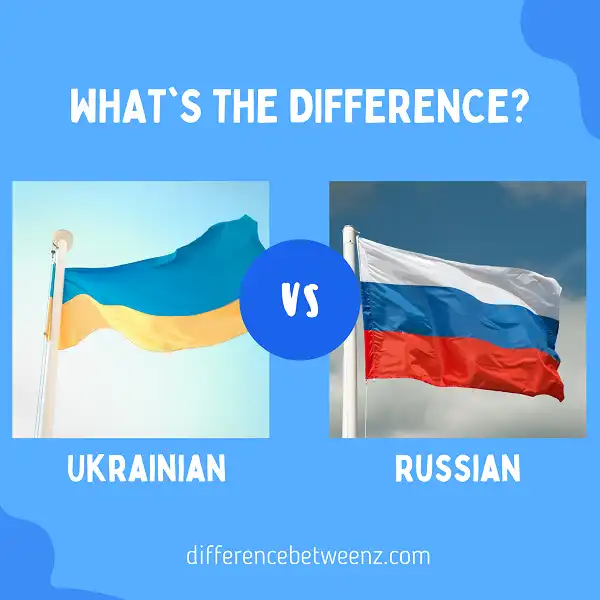The Ukrainian and Russian languages are very similar, but there are some definite differences. This can be confusing for people who are trying to learn one or the other language. In this blog post, we will take a look at some of the key differences between Ukrainian and Russian. We will also discuss how these differences can affect communication between Ukrainians and Russians. Finally, we will give you a few tips on how to overcome these language barriers.
What is Ukrainian?
Ukrainian is an ethnicity as well as a language. Ukrainians are East Slavic people, and the Ukrainian language is a descendant of the Common Slavic language. Ukrainian is spoken by approximately 40 million people, making it one of the world’s major languages. The vast majority of Ukrainian speakers live in Ukraine, where it is one of the official languages. Ukrainian is also spoken in a number of other countries, including Belarus, Moldova, Poland, Romania, and Russia. Ukrainian literature dates back to the 12th century, and some of its most famous authors include Taras Shevchenko, Ivan Franko, and Lesya Ukrainka. Ukrainian culture has also been influenced by a variety of other cultures, including those of Byzantium, the Ottoman Empire, and the Russian Empire. As a result, Ukrainian identity is complex and diverse.
What is Russian?
Russian is the primary language spoken in Russia. Russian is also an official language in Belarus, Kazakhstan, and Kyrgyzstan, as well as is widely used throughout the Baltics, the Caucasus, and Central Asia. Russian is one of the six official languages of the United Nations. Ethnically, Russian people are predominantly Russian Orthodox Christians. Historically, the Russian people have been united by a common culture and heritage, as well as by their adherence to Russian Orthodox Christianity. In terms of national identity, Russian people are typically seen as being distinct from other East Slavic peoples such as Ukrainians and Belarusians. However, there is also a significant Russian diaspora spread across the world, with particularly large communities in North America and Europe. As a result, Russian identity is complex and multi-faceted, encompassing both ethnic and cultural elements.
Difference between Ukrainian and Russian
Ukrainian and Russian are two different languages spoken in Eastern Europe. Ukrainian is the official language of Ukraine, while Russian is an official language in Russia, Belarus, Kazakhstan, and Kyrgyzstan. Both Ukrainian and Russian are Slavic languages, which means they share a common ancestor. However, Ukrainian and Russian have diverged over the years, and there are no significant differences between them. Ukrainian has undergone more changes than Russian, resulting in a more simplified grammar. Ukrainian also uses a different alphabet, known as Cyrillic, while Russian uses the Latin alphabet. In terms of vocabulary, Ukrainian and Russian have borrowed words from each other, as well as from other languages. However, there are still many words that are unique to each language. As a result of these differences, Ukrainian and Russian are two distinct languages that are not mutually intelligible.
Conclusion
The Ukrainian and Russian languages are quite similar, but there are some distinct differences. If you’re traveling to either country or trying to do business with people from these countries, it’s important to be aware of the distinctions between the two languages. We hope this article has helped clear up some of the confusion and given you a little more understanding of these two Slavic languages.


